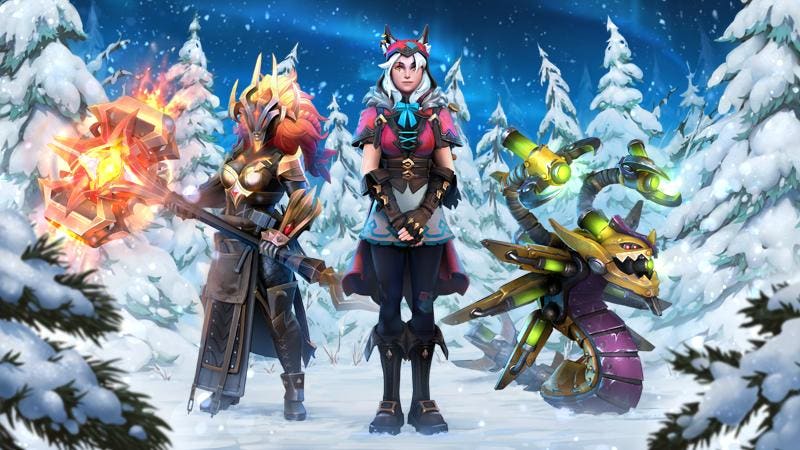The recent Frostivus event in Dota 2, while offering a welcome reprieve from smurfing and MMR abuse through a ban wave and introducing enticing cosmetic sets and sales, has introduced a gameplay mechanic that significantly detracts from the core Dota 2 experience, particularly for players focused on ranked progression. The event’s crafting system, designed to reward players with free cosmetics for performing specific in-game actions, has inadvertently incentivized behaviors that disrupt the flow of matches and prioritize frivolous activities over strategic gameplay.
The crux of the issue lies in the nature of the actions required to earn crafting resources. Instead of aligning with the fundamental objectives of Dota 2, such as securing kills, destroying towers, and accumulating gold, the event encourages players to engage in tangential activities like stealing festive hats from enemies using a channeled ability, chasing penguins across the map, and pelting opponents with snowballs. These actions, while seemingly harmless in isolation, cumulatively detract from the strategic depth of the game and disrupt team coordination, especially at lower skill levels.
The pre-game phase, typically dedicated to strategizing and establishing lane dominance, is often hijacked by the pursuit of penguins, leaving teams vulnerable to early aggression and disrupting the delicate balance of power. Similarly, during crucial team fights, the allure of stealing a hat or landing a snowball often overrides the imperative to secure kills or protect vulnerable allies, resulting in lost opportunities and ultimately, lost matches. This diversion of focus, however minor it may seem, can have a substantial impact on the outcome of games, especially in the highly competitive environment of ranked matchmaking.
While the intention behind the crafting system is commendable, offering players a chance to acquire cosmetics without spending real money, its implementation inadvertently undermines the core gameplay loop of Dota 2. The pursuit of crafting resources overshadows the strategic elements that define the game, transforming matches into a chaotic scramble for festive trinkets rather than a test of skill and teamwork. This is particularly frustrating for players who prioritize ranked progression, as the event mechanics incentivize teammates to prioritize whimsical objectives over securing victory.
The contrast between the Frostivus event and the highly acclaimed Crownfall saga further highlights the shortcomings of the crafting system. Crownfall, with its narrative-driven progression and strategic challenges, seamlessly integrated into the core gameplay experience, enhancing rather than detracting from the strategic depth of Dota 2. Frostivus, on the other hand, introduces extraneous elements that disrupt the flow of matches and prioritize superficial activities over the core objectives of the game.
Ultimately, the Frostivus event, while offering a festive atmosphere and the opportunity to acquire free cosmetics, falls short of the mark due to its disruptive crafting system. By incentivizing actions that detract from strategic gameplay, the event undermines the core experience of Dota 2, particularly for players focused on ranked progression. A more effective approach would be to integrate the crafting system with existing gameplay mechanics, rewarding players for achieving objectives that contribute to the overall strategic goals of the game, rather than introducing extraneous activities that disrupt the flow of matches. This would ensure that the pursuit of cosmetics complements, rather than competes with, the strategic depth of Dota 2, providing a more enjoyable and rewarding experience for all players. The success of the Crownfall saga serves as a testament to the potential for engaging events that enhance, rather than detract from, the core gameplay experience of Dota 2, and should serve as a model for future events.



